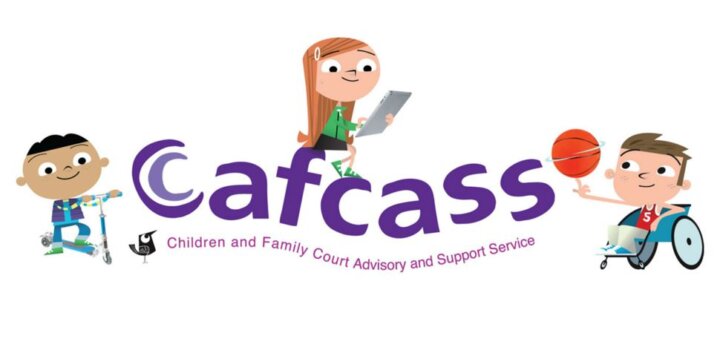Should my new partner adopt my child/children?
Step-parent adoption has been seen as a means by which to offer a stable family environment. Therefore, as family law solicitors, it is not uncommon to be asked if a step-parent (whether married or cohabiting) can or should adopt the child/ren of their partner.
There are lots of things to consider for anyone who is thinking about adopting their step-child/ren. This article seeks to set out the advantages and disadvantages to adoption; the alternatives to adoption; and the adoption process.
What are the legal advantages of adopting a step-child/ren?
The main advantages of adopting a stepchild/stepchildren are as follows:-
- The adopted child is recognised by English and Welsh law as the legal child of the adopting parent as if they were one of the birth parents.
- It can create some certainty for the children, particularly where there is an absent parent and the intended adopting parent wishes to take on that role in their life.
- The step-child/ren’s legal links to their previous parent (and that parent’s family) are severed, which in certain circumstances can be a positive (although this is also included as a potential disadvantage). This does not necessarily mean that contact with the other parent will be cut.
- All members of the family (including the step children) have, or can have, the same surname as the adopting parent. It should be noted that whilst a person can be known by whatever name they wish, the consent of each person with parental responsibility is needed to change a child’s name.
- The step-child/ren will share rights of inheritance with any other children of the same family. The same outcome, however, can be achieved through a suitably drafted Will.
What are the legal disadvantages of adopting step-child/ren?
These disadvantages are as follows:-
- Once the child/ren is/are adopted the law no longer recognises the other birth parent as having any parental links with the child/ren. This also means that legal ties to other relatives in that birth parent’s family are severed.
Step-parents considering adoption must be certain that they wish to take this step and ensure that it will benefit the children involved. The adopting parent will need to consider if the other birth parent is to remain in contact with the child/ren.
- Once the child/ren is/are adopted by the step-parent, the adopted child/ren lose any automatic rights to maintenance or inheritance from the other birth parent or their family (although there is nothing to prevent their birth parent or family making voluntary contributions or leaving them money under their will).
- If the relationship of the birth parent and new partner breaks down, the adoption will remain valid and the birth parent will have to try to agree arrangements for the child/children with them. They will, for example be unable to remove the child from the country for a holiday without their consent.
- If, and when, the child/ren are adopted by the step-parent then it can be confusing for the child/ren involved as they may not understand the legal consequences or the step-family’s reasons for taking such a step. The process may need to be explained to the child/ren along with the reasons for taking such action.
What is the result of an adoption order being made for a step-parent?
If an adoption order is made, the adopting parent will have parental responsibility for the child/ren from that point on and will become their legal parent. The non-resident birth parent will cease to have parental responsibility. Even if the relationship of the resident birth parent and the adopting parent breaks down, the adopting parent will continue to be recognised as the child/ren’s legal parent.
There is no automatic right to adoption. The local authority has a duty to investigate every family that intends to apply for an adoption order and prepare a report.
What are the alternatives to stepchild adoption?
There are many alternatives to adoption which can provide the same or similar rights and responsibilities which are sought by step-parents. Some of the alternatives are:-
- A Parental Responsibility Agreement or Order
Parental responsibility is commonly defined as all the rights, duties, powers and responsibilities that a parent of a child has in relation to them and their property. It enables a parent to share in the big decisions concerning the upbringing of a child such as their medical treatment, their education and what name they are known by.
The birth mother automatically obtains parental responsibility at birth. A birth father will attain parental responsibility through marriage to the mother and/or being named as the father on the child’s birth certificate.
Step-parents may want to have parental responsibility so they can make decisions and can obtain it by entering into a formal agreement with all those who have parental responsibility. If not everyone with parental responsibility agrees with this, then a formal application can be made to the court for a Parental Responsibility Order.
- A Residence Order
A Residence Order is an order which defines where a child or children reside on a permanent basis. If the step-parent successfully applies for a Residence Order, parental responsibility will be granted at the same time.
There is a risk of the non-resident parent contesting such applications and so it is advisable to seek legal advice.
- No Order
In some circumstances, step-parents may decide that there is no immediate need for a court order to be obtained. This coincides with the “no order” principle, which underlies court decisions in relation to children’s matters – the courts will only make an order when it is deemed necessary.
It is sensible to wait before any applications are made to ensure that the step-family functions in the long term.
What are the requirements before a step-parent can apply for a adoption order?
The following criteria must be met before an intended adoptive parent can apply to adopt a children or children:
- The applicant must be 21 years of age or over.
- The applicant is married to the resident birth parent, or the applicant is living with the resident birth parent in an enduring family relationship. This is likely to mean a period of at least one year, however some local authorities require at least two years.
- The applicant resides in the British Isles or has been habitually resident there for at least a year.
- The applicant has been continually living with the child for at least 6 months.
- The applicant has notified the local authority in writing of their intention to apply to court for an adoption order at least 3 months before submitting an application to the court.
- The child is 18 years of age or younger.
What is involved in the process of adopting a stepchild?
To apply for an adoption order, it is first necessary to make enquiries of your local authority and register an interest with them. They will then investigate whether adoption is appropriate, by undertaking an assessment and preparing a report.
The local authority will consider a number of factors including:
- The child’s best interests
The local authority will conduct interviews with the child/ren to ascertain their views on the intended adoption, as they will want to make sure that it is in their best interests.
- The views of the birth parents and anyone else with parental responsibility
The birth parents and anyone else with parental responsibility will need to be interviewed and their consent obtained. If not everyone consents, it is likely the application will be contested and legal advice should be sought.
If a birth parent is absent and does not have parental responsibility, they will need to be contacted by the local authority as they have legal rights by virtue of being that child’s birth parent. If their whereabouts are unknown, the court will want to know that all possible efforts have been made to find the absent parent.
- References
Usually, the local authority will require you to provide names and addresses of at least three referees who can support your application.
Submitting the application
Once the local authority has undertaken their assessment, the parties should be in a position to lodge their application to court subject to the response received from the local authority. A court fee is payable in order to issue the application, albeit it can be waived in certain circumstances.
Once the local authority has submitted its report, the court then considers the contents of the application and the report in order to make a decision.
After the court application
Once the adoption order has been made, a new birth certificate will be issued including the name of the adopting parent (i.e. the step-parent) and the resident birth parent.
Summary
Step-families must consider the legal implications of obtaining an adoption order and consider whether this will benefit the child/ren involved.
If an agreement with the other birth parent for an adoption order can be reached, the process will be simpler. If an agreement cannot be reached then a contested application may be required, which could be time consuming and costly. As such, it is worth exploring the other alternatives discussed.
Should you require further advice in relation to this issue then please do not hesitate to contact us at Rayden Solicitors.
Areas of Family Law We Cover
- Divorce
- Financial Claims on Divorce
- Financial Arbitration
- The Family Business and Relationship Breakdown
- Family Trusts, Partnerships and Assets Held Offshore
- Civil Partnership Dissolution
- Unmarried Couples and Relationship Breakdown
- Pre-nuptial and Post-nuptial Agreements
- Expat and International Divorce Law
- Tax Implications of Divorce and Separation
- Collaborative Law
- Children and Relationship Breakdown
- Step-parent Adoption
- Grandparents’ Rights
- Domestic Violence
- Surrogacy Law














